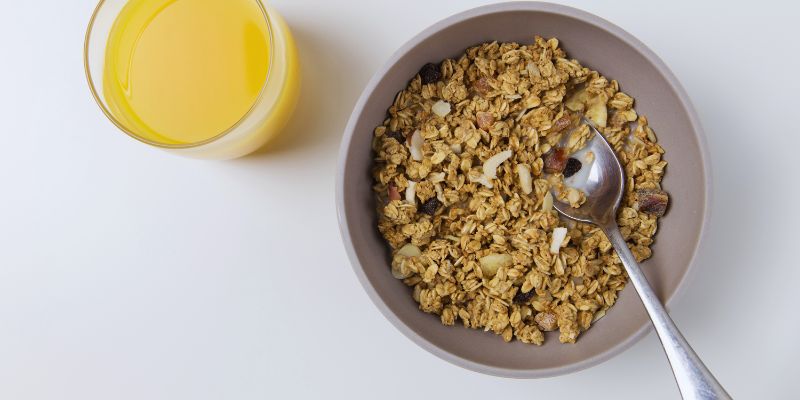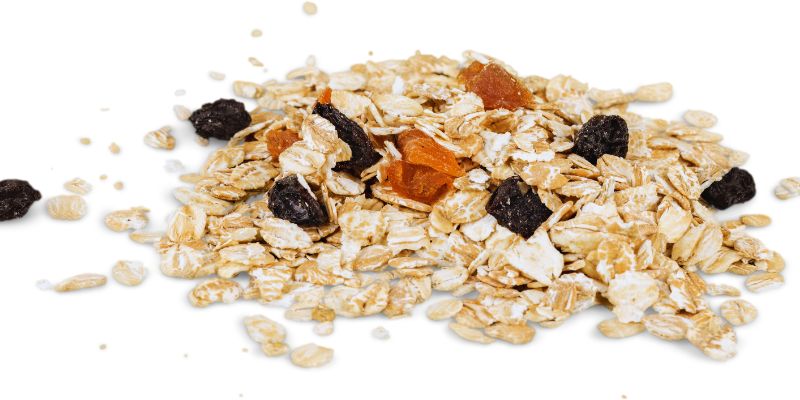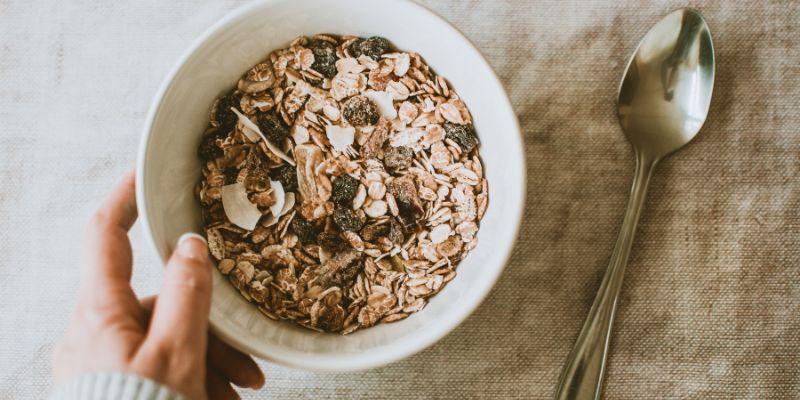Why Cereal Fiber May Be Your Best Choice for a Healthier Gut: An Understanding
Everyone must follow a healthy diet that includes fiber. It helps gut flora feeding, regular bowel motions, and digestion. Of several kinds of fibers, cereal fiber has special advantages. Whole grains, including oats, wheat, barley, and rye, abound in cereal fiber. Studies point to it helping with weight control, lowering cholesterol, and enhancing intestinal health.
These provide the feces with additional bulk and assist in enhancing regular digestion. Low grain consumption makes many individuals overlook its advantages. Including cereal fibers in recipes can be quick and easy. They provide simplicity and adaptability from bread, wholesome grains, or morning cereal. This page explains why cereal fiber can be your best option.

What Is Cereal Fiber?
Wheat, oats, and barley are among the outside layers of grains from which cereal fiber originates. It mostly comprises insoluble fiber, which does not dissolve in water. Rather, it makes stool heavier, which promotes better digestion and helps to avoid constipation. Soluble components in cereal fiber also serve as prebiotics, promoting good gut flora and a strong microbiome. Whole grains are the best sources of cereal fiber since refining techniques sometimes eliminate grains from their fiber count.
Including the entire nutritional value from clean, unprocessed grains guarantees your diet is in line. The unique quality of cereal fiber is found in its nutritious mix. Though many cereals, bread, and other grain products are fortified with additional fiber, natural choices include oats, whole-grain bread, and barley remain the best. Including them in your diet supports better long-term health and aids digestion.
Benefits of Cereal Fiber for Gut Health
Maintaining a healthy gut depends on cereal fiber, which also provides several special advantages for general digestion and well-being:
- Improves Digestion: Effective digestion depends heavily on cereal fiber. It keeps food flowing naturally through the digestive tract, minimizing problems such as bloating and constipation. A major component of cereal fiber, insoluble fiber, gives feces more weight and facilitates bowel regularity by helping it pass more easily.
- Feeds Healthy Gut Bacteria: Cereal fiber feed's prebiotic properties benefit gut bacteria in their natural form. Cereal fiber's nutrients enable these bacteria to flourish, preserving a balanced gut flora. A good microbiome can help mental health, boost the immune system, and assist in correct digestion.
- Reduces Inflammation: Whole grains high in cereal fiber taken regularly have been demonstrated to reduce intestinal inflammation. This anti-inflammatory action guards against digestive disorders like irritable bowel syndrome (IBS).
- Prevents Digestive Disorders: Cereal fiber lowers the incidence of major digestive problems, including diverticulitis and colorectal cancer, promoting a clean and healthy gut environment. Maintaining the best possible functioning of the digestive system helps avoid accumulating dangerous chemicals in the stomach.
Including cereal fiber in your diet will help you maintain gut integrity and avoid digestive disorders.

How does Cereal Fiber compare to Other Fibers?
Two primary forms of fiber are soluble and insoluble. Good health depends on both, but cereal fiber has special benefits:
Soluble Fiber from Fruits and Vegetables:
Soluble fiber develops a gel-like consistency in the digestive tract and dissolves in water. It controls blood sugar, helps lower cholesterol, and advances heart health. Common sources of soluble fiber are fruits such as apples, vegetables, including carrots, and legumes, including beans. Although helpful, soluble fiber lacks the same bowel-bulking action as cereal fiber.
Insoluble Fiber from Cereal Grains
Insoluble fiber cannot be dissolved by water. Rather, it gives stool weight and aids in proper digestion. Mostly from cereal grains, including barley, oats, and wheat, insoluble fiber is found in Acting as the digestive tract's natural exfoliant; this fiber maintains its cleanliness and integrity. Encouragement of consistent bowel motions helps avoid digestive problems, including constipation and bloating. Frequent insoluble fiber intake also lowers the incidence of long-term gastrointestinal disorders, including diverticulitis.
Why does Cereal Fiber Stand Out?
Cereal fiber offers one particular unique mix of benefits. It supports normal digestion by nourishing good gut bacteria and raising intestinal regularity. It sets it apart from fibers found in fruits and vegetables by this twofold activity. Furthermore, vitamins, minerals, and antioxidants found in cereal fibers are vital for general health. Its great insoluble fiber content aids bowel health and lowers the risk of chronic digestive problems. Including cereal fiber in your diet guarantees a more balanced and efficient method of long-term digestive health.
How Much Cereal Fiber Do You Need?
Your age, gender, and general health will all determine how much cereal fiber you require. Adult daily fiber guidelines for men and women are 38 grams and 25 grams, respectively. Although soluble and insoluble fibers are included here, a good amount should come from cereal fiber to support gut health. Cereal fiber is crucial because it helps a good gut microbiome, provides weight to stool, and helps avoid constipation. Including roughly 8–12 grams of cereal fiber daily will improve digestion. Foods high in whole grains, such as oats, wheat bran, and whole-grain bread, will help one reach this level.
Though their needs are less than those of adults, children still need fiber. Young children should strive for 14–31 grams of fiber daily, depending on their age; cereal fiber is a major component. Emphasize including natural sources of cereal fiber in every meal to ensure you're getting your required intake. Breakfast should consist of whole-grain cereal or oatmeal, then whole-grain bread and snacks should be incorporated throughout the day. Regularly consuming foods heavy in cereal fiber will help you keep your digestive system and general well-being in good order.
Conclusion:
A great supplement to a balanced diet, cereal fiber has several advantages for gastrointestinal and general health. Its special combination of insoluble and soluble fibers feeds gut bacteria, supports frequent bowel motions, and aids digestion. Your meals should include whole-grain foods To meet the advised daily fiber consumption, including barley, wheat bran, and oats. It reduces digestive problems and helps to preserve a balanced gut flora. Little dietary modifications like starting your morning with whole-grain cereal or substituting whole-grain bread can have a major impact. Give cereal fiber top attention for long-term health.











